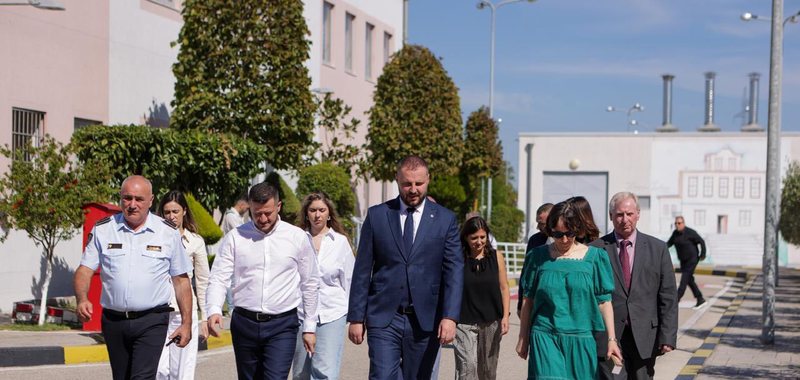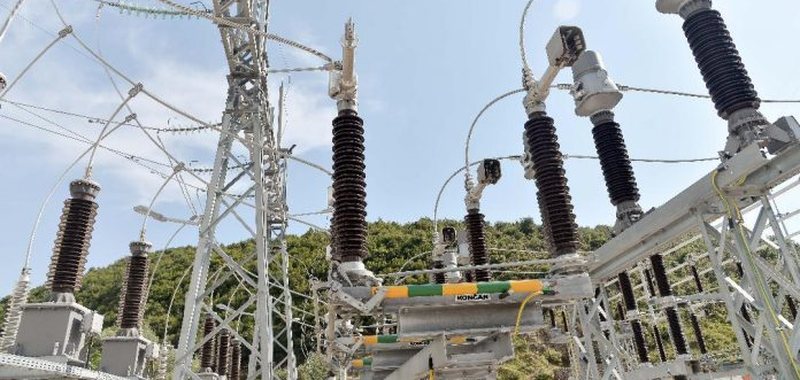Kosovo and Albania lead the region - EBRD predicts economic growth of 3.9% and 3.5%, respectively

The European Bank for Reconstruction and Development (EBRD) has published projections for the economies of its member countries this year and next. As for the Western Balkans, Kosovo with 3.9% and Albania with 3.5% will have the highest growth in the region this year and in 2026.
According to the EBRD, real growth in the Western Balkans is projected to be modest, averaging 2.7% in 2025 and 3.2% in 2026. “Continued global uncertainty and weak EU demand will continue to impact exports, trade, investment and remittances, particularly in export-oriented economies such as Serbia, Bosnia and Herzegovina and North Macedonia,” the report notes. Tourism-dependent economies such as Kosovo, Albania and Montenegro are also affected by the increased uncertainty in EU economies.
"While resilient private consumption, wage growth and public investment have supported economic activity, structural reforms and progress towards EU integration could significantly boost further growth. Rising unit labour costs and inflation continue to pose significant challenges, while political instability in some economies weighs on investment and growth," the EBRD notes.
Regarding Albania, it is highlighted that economic growth moderated to 3.4% in the first quarter of 2025, driven by the services and construction sectors, while industry and agriculture experienced slight contractions.
On the expenditure side, economic activity was broadly balanced, with notable contributions from increased government consumption and exports of goods and services. The current account deficit narrowed by over 40% year-on-year in the first quarter of 2025, reflecting changes in all major components. Inflationary pressures remained low, with the annual inflation rate standing at 2.3 percent in August.
But the EBRD also lists risks related to the possibility of softening demand within the Eurozone, a decline in remittance inflows, and adverse climatic factors such as drought.
On the other hand, accelerated implementation of structural reforms and further progress in European Union integration, further supported by the implementation of the EU Growth Plan for the Western Balkans, could strengthen Albania's growth prospects.

'Driverless Bus' - Is this the transportation of the future?
Madrid has a new temporary public vehicle: a fully autonomous electric minibus that aims to bring the mobility of the future closer and alleviate the driver......

How much are the major currencies exchanged today? – The British pound is on the rise!
The US dollar appears stable this morning as compared to the previous day there have been no significant fluctuations in the quote, being bought today at 82......

Turkey to buy gas from US - Signs 20-year deal with Mercuria
Turkey has signed a 20-year deal with trading company Mercuria to buy American liquefied natural gas, as US President Donald Trump urges Europe to stop......

Drinking water and waste/ Rama: National operators for management
Prime Minister Edi Rama today announced intervention in the management of the Tirana Water Supply, through the National Water Operator, which has been......

Preparing for the job market, the British Embassy funds professional courses for prisoners at Fier Penitentiary Institution
The British Embassy in Tirana is funding the establishment of vocational courses for prisoners. Special facilities have been built in Fier prison for an......

Properties are being sold 41.7% more expensive than in 2024/ BoS: An apartment was bought faster on the coast than in Tirana. Rents are also increasing
In the first half of this year, properties were sold 41.7% more expensive than in the first half of last year. According to the Financial Stability Report of......

150 million lek for transformer repairs/OSSH opens tender, aiming to improve network security
The High Voltage Directorate of the Albanian Public Distribution System (OSSH) has announced the opening of a tender for the repair of high and medium......

Reform Agenda, how much is being implemented by Albania? Ulens: Progress in public finance management and fiscal performance
Albania is progressing in the implementation of the National Reform Agenda through funds received from the Growth and Reform Facility, part of the Economic......


















